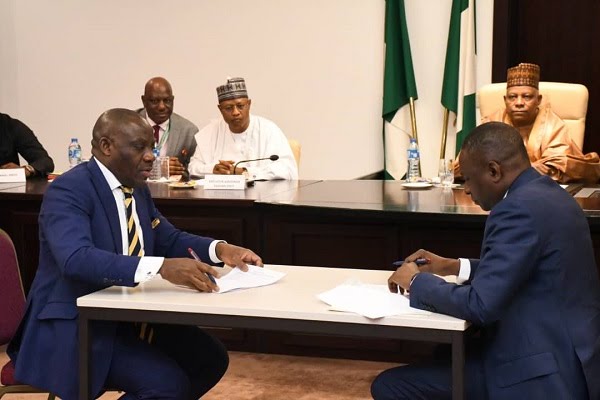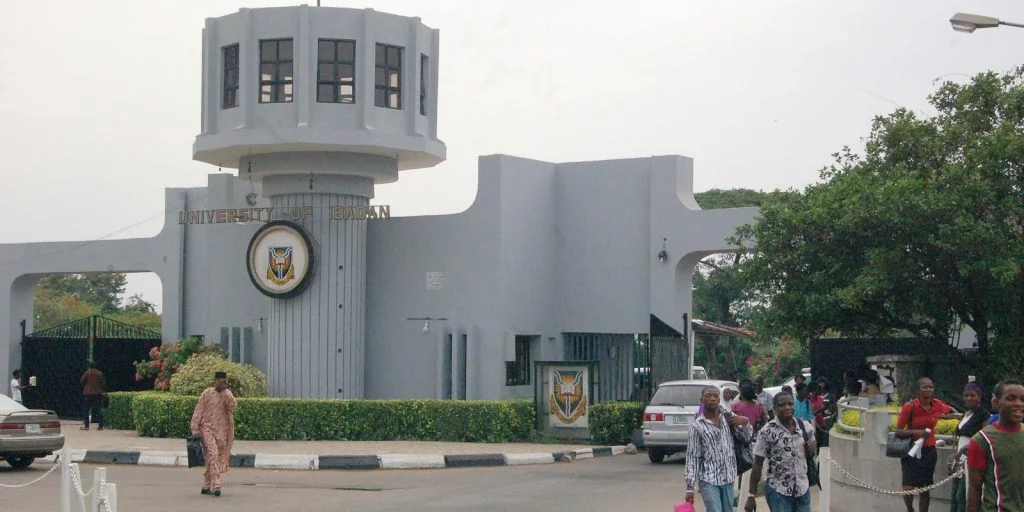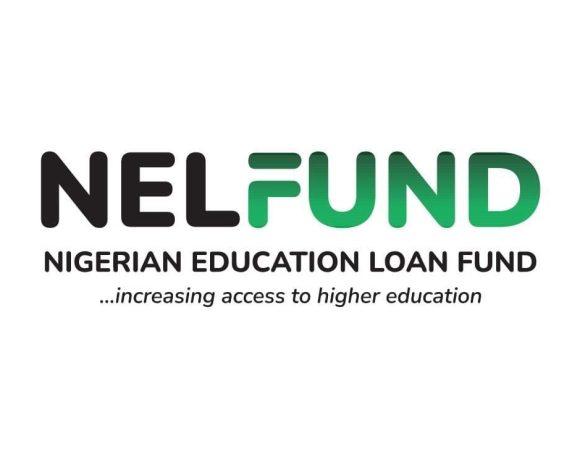Governors pledge 15% budget allocation to education


The Governors of Nigeria’s 36 states, through the Nigerian Governors’ Forum, have pledged at least 15% of their annual budgets to the education sector to solve the issues that schoolchildren face.
AbdulRahman AbdulRazaq, Chairman of the NGF and Governor of Kwara State, made the announcement following the inaugural International Conference on Girl Child Education, held in Abuja from October 10 to 11.
On the first day of the conference, Vice President Kashim Shettima warned that Nigeria would eventually suffer consequences for the millions of children who are not in school.
The Vice President stated “The dignity of the girl child defines every civilization, and today, we are bound by a duty higher than merely observing the challenges before us. We bear the responsibility of setting the tone for this nation, and there is no greater calling than to prioritize the education of the girl child and others. This is a mirror from which we cannot afford to look away because the consequences are dire and far-reaching.
“The statistics of our out-of-school children in Nigeria are a stark reminder of the urgency of this mission. The latest multiple indicator cluster survey showed that 25.6% of children of primary school age are out of school, and this rate rises to 29.6% for secondary school-age children. Each child abandoned to the streets is a liability that the nation will one day pay for.”
Kwara state Governor, represented by NGF Director General Abdulateef Shittu, stressed the need for urgent policies that will complement existing efforts to tackle the issue of out-of-school children.
He stated “Investing in education is not just a target; it is a necessity for the future of our children,” highlighting that the funding commitment aims to address critical barriers affecting girls’ access to quality education, including poverty and early marriage.
“Our commitment as a forum to education financing, especially Girl Child Education funding, is unwavering across the states. We declare our readiness to meet the international benchmark of at least 15 per cent annual budgetary allocation to the education sector.
“We are committed to having a vision for Education Community of Practice intervention framework for enrolment advocacy, funding support, and quality education scale-up through the provision of infrastructural and instructional materials in the school system and ensuring that our kids are in school and learning through experiential and digital literacy knowledge and skills acquisition.”
The NGF Chair assured that the newly launched Girl Child Education Volunteers’ Advocates will enlist over 774,000 volunteers from local governments to promote girl child education.
The Kwara State Governor continued “The unveiling of the Girl Education Ambassadors today is pivotal in our collective drive to address issues of access to education and learning poverty of our children. Through their collective efforts and in partnership with the Gender Desk Officers of the National Youth Service Corps, NGF will engage over 774,000 Girl Child Education Volunteers’ Advocates (GICEVA) across the 774 Local Government Areas annually for access and quality education advocacy projects.
“We are in partnership with the Federal Ministry of Youths, through the National Youths Service Corps to establish a Girl Child Education Community Service Group (CDS-Group) which will form an integral part of our Education Community of Practice aimed at addressing out-of-school children challenges, through primary school enrolment drive, foundational literacy and numeracy, teacher’s capacity training and schools support system.
“We are pleased to present to the public our Education Expenditure and Institutional Review report (2021-2023) for the States.”
Also, the Minister of Women Affairs, Uju Kennedy-Ohanenye, announced that starting October 15, 2024, the federal government will begin initiatives to rescue out-of-school children from the streets.
She stated, “The Federal Government is set to start picking out-of-school children from the streets, beginning on October 15, 2024.”
The Minister of Women Affairs emphasised that this initiative will help the government reach out to the families of these children, especially their mothers, to ensure they receive quality education. She stated that the initiative will serve the best interests of the nation.
She continued “Picking those children from the street will allow us to have access to their parents, especially their mothers.”
The minister elaborated on the government’s plans to empower the mothers of out-of-school children, highlighting initiatives aimed at enhancing their skills and resources to support their families and ensure that their children receive the education they deserve.
She added “We have a comprehensive plan to empower these women so they can adequately care for their children.
“I urge all relevant stakeholders and well-meaning Nigerians to come together to empower less privileged women across the nation.”
She highlighted the essential role of women’s empowerment in enhancing educational outcomes for children, especially girls, and further detailed the government’s initiatives to support the mothers of out-of-school children.
“This approach aims not only to bring children back into education but also to enhance the economic stability of their families, she added.
In her earlier remarks, Kwara state First Lady Olufolake Abdulrazaq praised the NGF for organizing the event, which coincided with the International Day of the Girl Child.
She emphasised that the right to education for Nigeria’s girls is both an obligation and a moral imperative.
“While there has been significant progress in improving girl child access to education, many continue to be deprived of this basic right, she lamented.
Kwara state First Lady called for focused investments in technical and vocational education for adolescent girls, stating that these programs provide them with vital skills for employment and entrepreneurship.
In his closing remarks, Shittu emphasised the Forum’s dedication to tackling challenges in education, especially at the foundational level.
Shittu, who stated that girl child education is the NGF’s highest priority, emphasised a primary school enrollment campaign designed to decrease the number of out-of-school children.
Key highlights of the conference included presentations on various educational strategies, the launch of the Girl Child Education Volunteers’ Advocates (GICEVA) initiative, and a panel discussion, among other activities.









